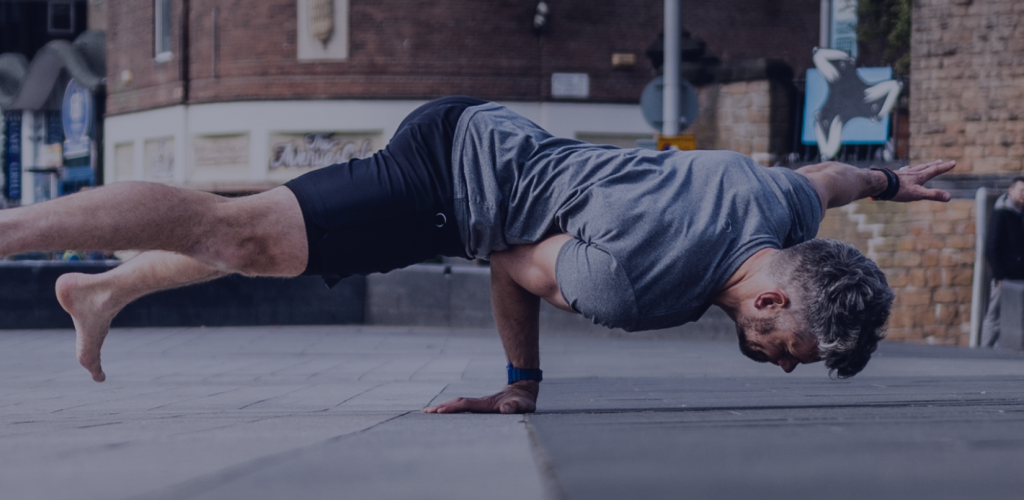Sport
Diet of a Calisthenic Athlete with David Jackson

A professional rugby player for 14 years, David Jackson was forced to retire early due to a head injury.
Since then, he has become a UKSCA Accredited Strength and Conditioning coach, and currently supports Paralympic athletes. He has also co-founded the School of Calisthenics, which provides training workouts and calisthenics programmes to enable athletes to tap into their full, physical potential.
We interviewed David, and he revealed his top tips on how you can improve your sporting ability, nutritional advice, and the importance of building strong foundations.
Q&A with David Jackson
Can you provide details on the daily activity levels for professional athletes – specifically rugby players?
Rugby is a varied sport which requires players to have high levels of strength, endurance, speed, agility, and physical and mental robustness.
A typical training day includes 1-1.5 hours of weight training or conditioning in the morning. The afternoon sessions include 1-1.5 hours of rugby-specific training or conditioning, with 30-45 minutes of position-specific conditioning, which may include speed, agility or endurance training.
What are your five top tips for anyone looking to improve their sporting ability?
1. Invest time in the mental side of your performance.
Look at developing your mindset, as this will affect how well you do at everything else, from how you train, to what you eat, and how motivated you are. This includes goal setting, mental imagery and visualisation practice, as well as reviewing your ongoing development.
2. Consistency is key.
If you get that right at the start, then it has a positive effect on everything else. The more consistent you can be with your training on a daily and weekly basis, the more positive the impact in the long-term.
3. Look after the small things.
If you can take care of the things that are in your control – like daily nutrition and training – the bigger things will take care of themselves. Too often we worry about what’s going to happen to things that are out of our control.
4. Eat for health and you’ll get performance.
Too often, nutrition strategies are created while looking for a short cut, quick win or magic supplement. Your body will only be able to perform optimally if you’re healthy and have all the nutrition to allow it to function. Having a protein shake isn’t the solution if other areas of your diet are lacking.
5. Quality of movement.
I’ve chosen ‘movement’ rather than ‘strength’, because with focus, you can build as much strength on top of your movement as possible. However, if you have poor movement and only focus on strength, you’re either going to hit a plateau, or set yourself up for injury.
What are your five top tips for body building strength?
1. Movement is the cornerstone of performance.
If you have good quality movement patterns that are functional and related to your sport, then you can develop the required strength as a result on top of that movement.
2. Stability is the often the missing link.
Many people overlook the importance of stability when strength training. If you’re lacking stability around any joint, when you try to apply force or load to it, the brain won’t let you access all the strength you could produce for fear of causing an injury. Ensuring you have good stability at the shoulders, spine, hips, knees and ankles is an essential building block for bigger strength gains.
3. Use the correct acute variable.
If you want to build strength, you need to use lower rep ranges (max strength 1-5, hypertrophy 6-12) rather than busting out more and more reps of an exercise, otherwise you’ll develop an endurance adaptation, as opposed to strength.
4. Don’t forget tempo.
If you want to build strength, then you need to consider the tempo, which is the speed in which you move through the eccentric (lowering phase – muscle lengthening), isometric (phase between the eccentric and the concentric) and the concentric (upward phase – muscle shortening). If it’s rushed, you won’t create the tension in the muscle that is required. For general strength, a 2-0-2 tempo is recommended.
5. Rest and recovery.
You don’t get stronger when you’re in the gym, you get weaker, as you’re causing micro damage to the muscle you are training. Your body then adapts to that training stimulus when you rest and recover. So, it’s vital to build strength and have enough time to recover between sessions. You should also get enough sleep for the rebuilding to take place, and have a healthy nutritional strategy.
Why is it important to build strong foundations?
Building strong foundations for your physical training is essential for your long-term progress, whatever your sport. Think of it like building a house: the foundations are there to hold it up. It doesn’t matter how fancy the house is, if the foundations aren’t laid correctly, or aren’t strong enough.
The foundations of your strength is about doing the simple things right, and doing them consistently. Core strength is often overlooked, but it’s so important as all your functional movement incorporates integration from the core.
Five top nutrition tips for Calisthenics
1. Nutrition should be focused on health.
Your performance will come. Without the right nutrient balance to your body, you can’t perform optimally.
2. Recovery starts before the session.
Make sure you focus just as much on your pre-training nutrition, as your post-training recovery.
3. Add variety to your week.
Don’t get stuck eating the same thing day-in-day-out. You’ll never get the variety of nutrients you need if your diet is repetitive, so get creative.
4. Make your plate colourful.
Your plate should have as many colours of the rainbow as possible. Lots of these come from fruits and vegetables, but also think about foods like sweet potato, and natural fats such as avocado and extra virgin olive oil, as well as lean cuts of meat or fish for your protein. Try to keep it organic where possible.
5. Get your gut moving.
It’s been shown that it’s not just what we eat, but what the gut can absorb that’s important. If we’re stressed, eat in a rush, or are on the move, our digestive system can’t do its job as effectively. So, take a minute before you eat, sit down, and do some slow-controlled breathing, to get your gut ready for digestion mode!







